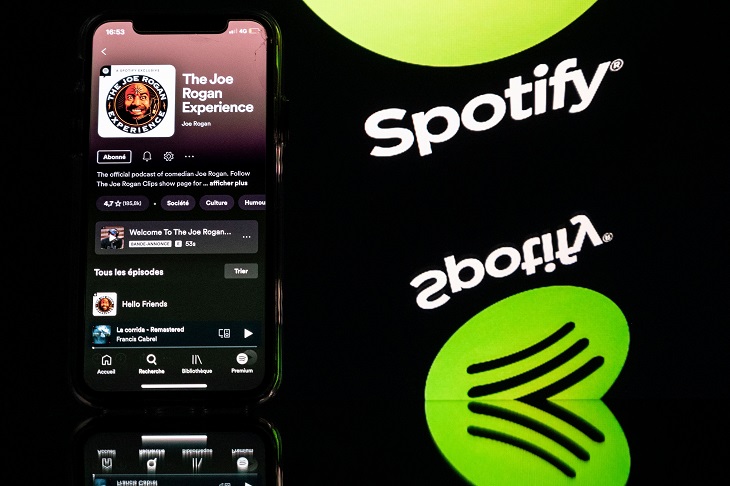As music platform Spotify continues to deal with criticisms of its exclusive Joe Rogan Experience podcast, some wise heads will be saying, ‘Told you so.’
The hype and scale around dominant digital media platforms like Spotify and social media giants like Facebook and Twitter has been driven to some large extent by the ‘free for all’ culture they generate.
Yet, even as ‘Cyber Utopians’ like Clay Shirky were touting the revolutionary potential of social media around 2010, and events like the Arab Spring were apparently confirming their bullishness, commentators such as Evgeny Morozov were sounding a cautionary note.
Morozov argued that freedom, rather than being bolstered by the internet, could end up being challenged by it.
‘If Amazon’s dream of a world without gatekeepers becomes reality, then the company itself will become a powerful gatekeeper,’ he wrote in his 2013 book To Save Everything, Click Here.
As the Joe Rogan/Spotify saga embodies, the free debate of the early internet era is now threatened by the commercial imperatives of the platforms and their investors.
Whether anyone agrees with Rogan’s approach or not, the early days of the internet would have seen his right to broadcast unquestioned. That this freedom is now threatened by – and via – the very internet structure that spawned it, attests to the crisis of narratives that is hollowing out the social media information delivery model.
Standard organisational communications has it that any entity, large or small, needs to have a consistent message in public relations terms. In news media landscapes this means that media companies looking to inform and generate debate have tended to adopt a certain ‘line’ which frames the angles and the editorial direction.
That’s not to say traditional or legacy media has developed a subjective culture, more that its objectivity has been in service of a broad ideal, be it democracy or a free market, and teased that out – ‘storied it’ – so that differences within the broad frameworks of accepted norms could be given space. That format was tempered and framed by the advertising dollars that propped up legacy media pre-internet.
Thus, the media narrative had, more or less, a functional singularity. Pre-internet media in the West since at least the 1950s was more or less without question, pro-state, pro-market, pro-democracy. The discourse was around how those structures should look and work.
Then, you had Facebook (launched in 2004) and Twitter (2006) which believed the multiple narratives of any given community or population could simply be collated and published, outside any frameworks or structure. This approach would, they argued, redefine how information was received, making it more democratic and direct. The news was not a narrative as such, but a landscape. Truth was where you found it.
For fellow disruptors like Spotify, for example, the mindset appears to be to throw anything and everything on the wall and see what sticks. As long as someone listens to it. That has become more apparent as it shifted into podcasting to help it develop a more loyal market than ‘FIFO’ music fans.
That too worked for a while.
Now, they have been forced to choose sides and it looks like the internet revolution is over.
In this light, we might see Mark Zuckerberg’s vision of a ‘metaverse’ as something of an admission that social media as we know it, even such a highly commercialised and successful component of it as Facebook, does have its limits after all.
The journey of social media platforms over the last two decades suggests that the concept of multiple narratives just ends up being, well, no narrative at all.
Traditional media too has got tangled up in trying to play the same game and has, as a whole, struggled to find its own purpose.
The result is a confused and anxious populace and an overreaching and panic-stricken managerial and political elite, all looking to control their destiny and to focus the narrative. Hence conspiracies, fake news, misinformation, propaganda; an overwhelming tsunami of narratives.
Spotify’s ‘Rogan Moment’ embodies the world social media has made. It’s not who is right or what are the facts. It’s who sells the best story. The world before was far from perfect. But if this is utopia then nostalgia might define the future.
James Rose is an author, media and communications writer and analyst and a university tutor in media and journalism.
Got something to add? Join the discussion and comment below.
Get 10 issues for just $10
Subscribe to The Spectator Australia today for the next 10 magazine issues, plus full online access, for just $10.

























Comments
Don't miss out
Join the conversation with other Spectator Australia readers. Subscribe to leave a comment.
SUBSCRIBEAlready a subscriber? Log in